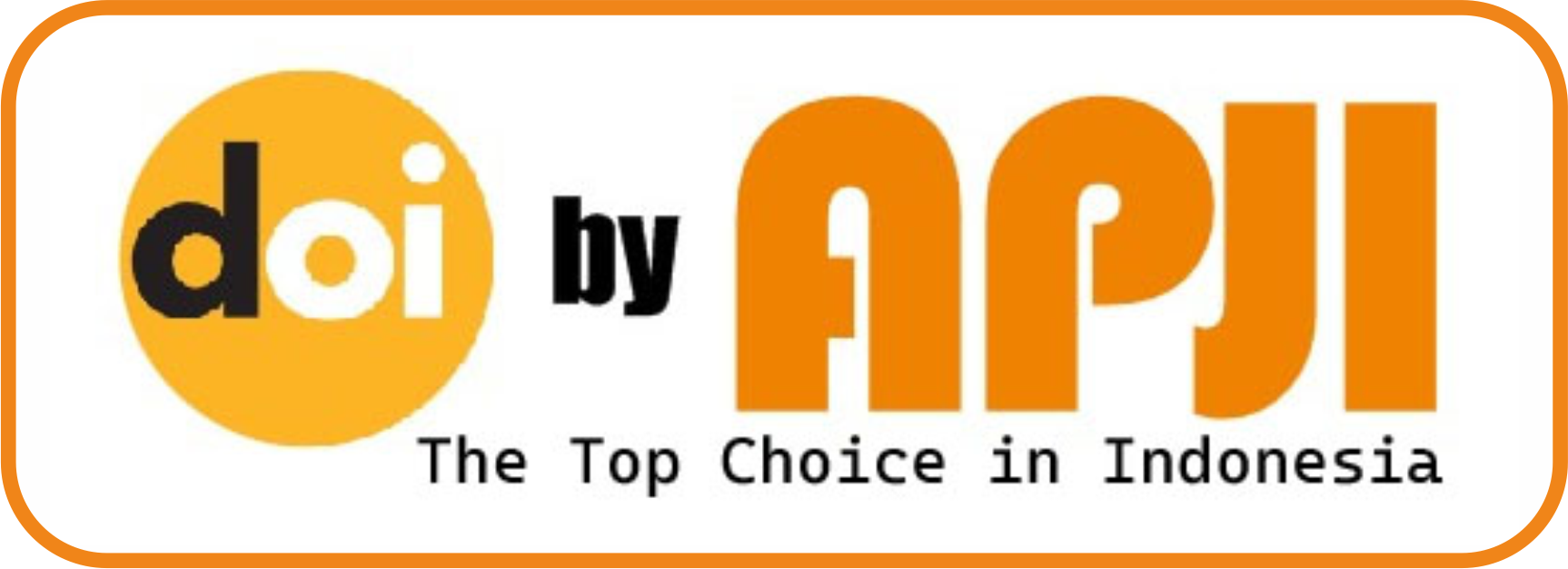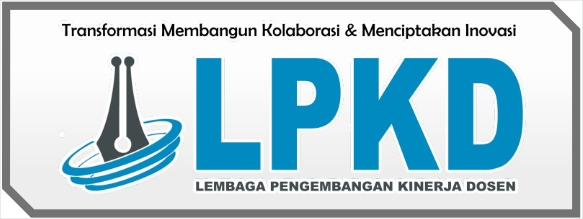Uji Aktivitas Sitotoksik Ekstrak Kulit Bawang Putih (Allium satovum L.) Dengan Metode BSLT (Brine Shrimp Lethality Test)
DOI:
https://doi.org/10.55606/klinik.v1i1.2824Keywords:
Garlic Tuber skin (Allium sativum L.), Brine Shrimp Lethality Test, Artemia Salina LeachAbstract
Garlic (Allium sativum L.) stores many benefits as traditional medicines that have long been known to overcome and prevent various diseases such as antimicrobials, anticancers, antioxidants and antidiabetics but the potential of garlic skin research has not been found as an anticancer by using the BSLT (Brine shrimp lethality test) method as a preliminary test. This study was conducted to find out the toxicity of garlic skin extract (Allium sativum L.) using the BSLT extract method made by maceration using methanol solvent. Toxicity tests are performed using the larvae of the 48-hour-old Artemia saline Leach shrimp. The toxic effects of the extract are identified with a percentage of shrimp larva mortality using probit analysis (LC50). The results showed that garlic skin extract contains alkaloid compounds, flavonoids, phenolics, and triterpenoids. Toxic extracts are characterized by LC50 values <1000μg/ml. and the results of the toxicity test of garlic skin extract with methanol solvent have an LC50 value of 44.18μg / ml with toxic category. Keywords: Garlic Tuber skin ((Allium sativum L.), Brine Shrimp Lethality Test, The results showed that garlic skin extract contains alkaloid compounds, flavonoids, phenolics, and triterpenoids. Toxic extracts are characterized by LC50 values <1000μg/ml. and the results of the toxicity test of garlic skin extract with methanol solvent have an LC50 value of 44.18μg / ml with toxic category.
References
Agoes.G. (2007). Teknologi Bahan Alam, ITB Press Bandung.
Agustina, S., dkk.Skrining fitokimia Tanaman Obat Di Kabupaten Bima. Indonesia E-Journal of Applied Chemistry. Vol 4 No 1 Th 2016.2016 Culvenor, C. C. J., & Fitzgelard, J. S.(1963).A field method for alkaloid screening of plants. Journal of Pharmaceutical Sciences, 52(3), 303-304.
Departemen Kesehatan RI, 2000, Parameter Standar Umum Ekstrak Tumbuhan Obat, Cetakan Pertama, 3-11, 17-19, Dikjen POM, Direktorat Pengawasan Obat Tradisional.
Desen, Wan. (2011). Patologi Tumor. Dalam: Japaries, W, ed. Buku Ajar Onkologi Klinis Edisi 2. Jakarta: Balai Penerbit FK UI.
Dirjen POM. (2000). Parameter Standar Umum Ekstrak Tumbuhan Obat. Jakarta: Departemen Kesehatan Republik Indonesia.
Depkes RI. (2018). No Title. TOKSIKOLOGI KLINIK, Departemen Kesehatan Republik Indonesia, 1-435.
Departemen Kesehatan Republik Indonesia. (2018). Riset Kesehatan Dasar (RISKERDAS) 2018. Jakarta.
Fadli et.al. (2019). Acute Toxicity Test Of Ethanol Extract Of Salam Leaf ( Syzygium polyanthum Walp .) With BSLT Method ( Brine Shrimp Lethality Test ). Medical Sains, 4(1), 35–42.
Hagerman.A.E. (2002).Condensed Tannin Stuctural Chemistry.Departement of Chemistry and Biochemistry, Miami University, Oxford, OH 45056.
Hidayati, S.N. (2016). Pengaruh Pendekatan Keras dan Lunak Pemimpin Organisasi terhadap Kepuasan Kerja dan Potensi Mogok Kerja Karyawan. Jurnal Maksipreneur: Manajemen, Koperasi, dan Entrepreneurship, 5(2), 57-66. http://dx.doi.org/10.30588/SOSHUMDIK.v5i2.164.
Risdwiyanto, A. & Kurniyati, Y. (2015). Strategi Pemasaran Perguruan Tinggi Swasta di Kabupaten Sleman Yogyakarta Berbasis Rangsangan Pemasaran. Jurnal Maksipreneur: Manajemen, Koperasi, dan Entrepreneurship, 5(1), 1-23. http://dx.doi.org/10.30588/SOSHUMDIK.v5i1.142.
Bator, R. J., Bryan, A. D., & Schultz, P. W. (2011). Who Gives a Hoot?: Intercept Surveys of Litterers and Disposers. Environment and Behavior, 43(3), 295–315. https://doi.org/10.1177/0013916509356884.
Hanani, M. S. E. (2015). Analisis Fitokimia. Jakarta: Penerbit Buku Kedokteran EGC.
Harbone, J.B. (2006). Metode Skrining Fitokimia: Penuntun Cara Modern Menganalisis Tumbuhan Edisi Kedua. Bandung: Penerbit ITB. Pp 4-147.
Harborne, J. . (1978). Metode Fitokimia. Penuntun Cara Modern Menganalisis tumbuhan. Alih bahasa kosasih Padmawinata. In Bandung : ITB.
Haryoto et al.2013. Aktivitas Sitotoksik Ekstrak Etanol Tumbuhan sala (Cynometra ramiflora Linn) Terhadap sel Hela, T47D dan WiDR. Jurnal penelitian Saintek, 18 (Aktivitas Sitotoksik Ekstrak Etanol Tumbuhan Sala Aktivitas Sitotoksik Ekstrak Etanol Tumbuhan sala (Cynometra ramiflora Linn Terhadap Sel HeLa, T47D dan WiDR, pp, 21-28.W
Ichikawa, Makoto dkk 2003. Journal of Agricurtual and food Chemistry.
Jones, W.P., & Kinghorn, A. D. (2006). Extraction of Plant Secondary Metabolites, In Natural Products Isolation (323-351). New Jersey: Humana Press.
Kristianti, A. N., N. S. Aminah, M. Tanjung, dan B. Kurniadi. (2008). Buku Ajar Fitokimia.Surabaya: Airlangga University Press. Hal.23, 47.
Meyer, B.N., N.R. Ferrigni, J.E Putnan, L.B. Jacobsen, D.E. Nicholas, J.L. McLaughlin. 1982. Brine Shrimp: AConvenient General Bioassay for Active PlantConstituent. Departement.
Mudjiman, A. Makanan Ikan. Jakarta: PT. Penerbit Swadaya.1988.
Meyers, Michelle. Galic: an herb society of American guide. The herb society of America. 2006.
Pousette et al. (2014). UJI TOKSISITAS NONKLINIK SECARA IN VIVO. ImplementationScience, 39(1), 1–15.
Puspitasari, E., Agustina, B., Nuri, & Ulfa, E. U. (2015). Aktivitas Sitotoksik Ekstrak n-Heksana, Diklorometana, dan Metanol Daun Beluntas (Pluchea indica Less.) terhadap Sel Kanker Leter Rahim (HeLa). Journal Of Pharmaceutical Science And Pharmacy Practice, 2(1), 41-45.
Rahmawati, R., Fawwas, M., Razak, R., & Islamiati, U. (2018). Potensi Antikoagulan Sari Bawang Putih (Allium sativum) Menggunakan Metode Lee-White dan Apusan Darah.Farmaseutik,14(1),42.https://doi.org/10.22146/farmaseutik.v14i1.41927.
Robinson, T. (1995). Kandungan Organik Tumbuhan Tinggi. Bandung: ITB.
Rusdi, M., Deniyati., Ida, N., &Bariun, H.(2017).Rusdi: Uji Toksisitas Ekstrak Biji dan Klika Kelor (Moringa oleifera Lamk) dengan Metode Brine Shrimp Lethality Test. 93-97.
Sirait, M. (2007).Penuntun Fitokimia dalam Farmasi.Bandung: Penerbit ITB. Sirait, P. S., Setyaningsih, I., & Tarman, K.(2019). AKTIVITAS ANTIAKNKER EKSTRAK Spirulina YANG DIKULTUR PADA MEDIA WALNE DAN MEDIA ORGANIK. JPHPI, 22(1).
Sunarni., Iskamto dan Suhartinah. 2003. Uji Toksisitas dan Anti Infeksi Ekstrak Etanol Buah Brucea sumatrana Roxb. Terhadap Larva Udang Artemia salina Leach. dan Staphylococcus aereus. Biosmart 5 (4): 65-67.
Syamsiah, I.S. dan Tajudin 2003. Khasiat dan Manfaat Bawang Putih: Raja Antibiotik Alami. Agromedia Pustaka, Jakarta.
Szychowski K. A., Binduga U, E., Rybczyn’ ska Tkaczyk K., Leja M. L., Gminski J., 2016, Cytotoxic Effects of Two Extracts From Garlic (Allium sativum L.,) Cultivars on The Human Squamous Carcinoma Cell Line SCC-15, Saudi Journal of Biological Sciences, 30, 30-30
Sukma, D. 2016. Sehat Tanpa Obat Dengan Bawang Merah Dan Bawang Putih Yogyakarta: Rapha Publishing.
Sukardiman., R. Abdul dan P.N. Fatma. 2004. Uji Praskrining Aktivitas Antikanker Ekstrak Eter dan Ekstrak Metanol Marchantia planiloba steph. Dengan Metode Uji Kematian Larva udang dan Profil Densitometri Ekstrak Aktif. Majalah Farmasi Airlangga 4(3): 97-100.
Sugave, D. 2014 Characterization of Garlic Skin and Its Evalution as Biomaterial. National Institute of Technology Rourkela.
Wijayanti, R. dan Rosyid, 2015, Efek Ekstrak Kulit Umbi Bawang Putih (Allium sativu L.) terhadap Penurunan Kadar Glukosa Darah pada Tikus Putih Jantan Galur Wistar yang Diindukasi Aloksan, Jurnal Ilmu Farmasi & Farmasi Klinik, Volume 12 No.1 Juni 2015; page no 47-52. Wibowo, S.Artemia. Jakarta: Penebar Swadaya, 2013.


















